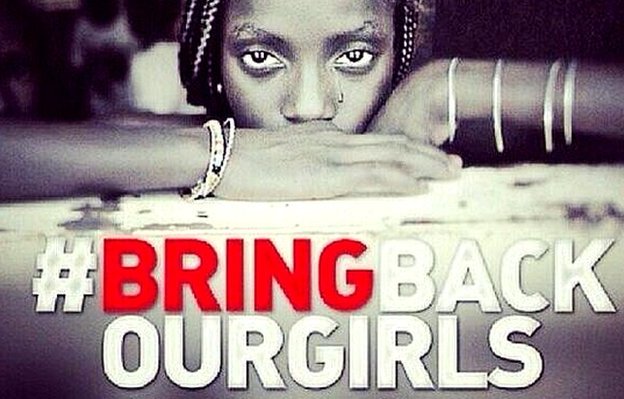The parents of the nearly 200 Nigerian schoolgirls, who have been held captive by Boko Haram since April 2014, remain hopeful along with the activists that the girls will regain their freedom but are “justifiably worried” by the government’s “lethargy…and complacency” to the issue as Sunday marks the girls’ 1000th days in captivity.
Boko Haram, the militant group which has claimed responsibility for the large scale abduction, insisted the girls would be freed only after negotiations by the Nigerian government. Now split into factions, there is no conclusive evidence about which faction is holding the girls.
A total of 276 had been taken on the night of 14 April 2014. Eighty-one — including 21 whose release was negotiated in October 2016 — are now free and in government care, with the latest one being freed Thursday along with her six-month-old baby.
Samuel Yaga, father of one of the kidnapped schoolgirls, has told Anadolu Agency he remains “anxious and hopeful” that his daughter would be freed like 81 of her mates who have since regained freedom.
Some 57 of the girls escaped on the night of the abduction, followed by Maryam Nkeki who escaped with a 20-month-old baby about two years later, while the Nigerian government negotiated the freedom of another on Oct. 21.
Another one had also escaped her captor since the kidnapping that sparked international outrage and raised the profile of the militant group.
At least 195 of the girls are still expected back, according to official records.
“I have not lost hope that my daughter will return to me but I must admit that we are dying of anxiety,” Yaga said, adding: “We now suffer from hypertension as a result. Our anxiety grows each time anything is said about the incident but we hope that the government has not moved on. The reassurance on their part appears to come only when pressure is mounted on them.”
Sesugh Akume, a spokesman for the #BringBackOurGurls, the civic movement that continues to push for the girls’ freedom, lamented their continued captivity and knocked the Nigerian authorities for not showing urgency on the matter.
Beginning Sunday, the group has declared a “global week of action” to snap the government back to action with daily sit-outs scheduled for various cities in Nigeria and abroad, including New York and Paris.
“Our movement is justifiably worried that the Nigerian government has once again relapsed to the same complacency, lethargy, and inertia that has been recurrent on this tragedy,” according to Akume.
“What else explains the fact that despite all assurances that another 83 of our Chibok girls were under negotiation for release ‘soonest’ there has been no further communication on the status of their release?”
While the government said in October that further negotiations were ongoing to free more girls, Anadolu Agency cannot verify the movement’s claim about Abuja specifically saying another 83 were set to be released.
Akume said the sit-outs would also see activists demand accountability in government’s handling of funds meant for victims of Boko Haram violence.
They will also, among other things, press for immediate cessation of violent hostilities in parts of the country involving herdsmen and farmers on one hand, and cattle rustlers and cattle owners on the other. Locals claim hundreds have been killed in the clashes.
“We insist that our government must take every action necessary to restore dignity to every Nigerian life,” Akume said.
The Nigerian government had in the past insisted it was doing everything to return the girls and all other Boko Haram captives. It is yet to respond to the latest claims of “lethargy” in the handling of the rescue operation.
Presidential spokesman Garba Shehu neither picked Anadolu Agency’s telephone calls nor responded to the text messages seeking his comment on the accusation and government’s action ahead of the anniversary.
In a statement following Thursday release of one of the girls, President Muhammadu Buhari, who was elected in 2015 almost a year after the abduction, thanked the military for their efforts and expressed optimism that the others would “one day be reunited with their families.”
The activists, however, say the president’s statement lacked any “tone of urgency”.
The Chibok girls – the first major abduction by the Boko Haram, only account for a tiny fraction of the kidnappings linked to the militants. Dozens of thousands of people have been freed from captivity as government troops dislodged the militants from their former strongholds and camps in the northeast.
At least two million people are believed to have been displaced since the crisis escalated in 2009 while nearly 15 million are directly affected by the insurgency that has also claimed roughly 20,000 lives.

